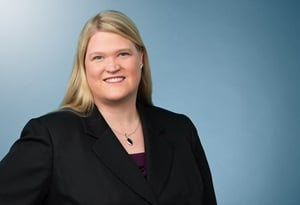Supreme Court Decides Truck Insurance Exchange v. Kaiser Gypsum Co., Inc., et al.
On June 6, 2024, the U.S. Supreme Court decided Truck Insurance Exchange v. Kaiser Gyspum Co., Inc., et al., No. 22-1079, holding that insurers with financial responsibility for bankruptcy claims are “parties in interest” under 11 U.S.C. § 1109(b) that “may raise and may appear and be heard on any issue” in a Chapter 11 case.
Petitioner Truck Insurance Exchange (“Truck”) is the primary insurer for companies that manufactured and sold products containing asbestos. Two of those companies, Kaiser Gypsum Company, Inc., and Hanson Permanente Cement, Inc., (the “Debtors”), filed for Chapter 11 bankruptcy, after facing thousands of asbestos-related lawsuits. As part of the bankruptcy process, the Debtors filed a proposed reorganization plan (the “Plan”), which created an Asbestos Personal Injury Trust for all present and future asbestos-related claims. Under that Plan, Truck would have been contractually obligated to defend each covered asbestos personal injury claim and indemnify the Debtors for up to $500,000 per claim.
Truck challenged the plan under § 1109(b) of the Bankruptcy Code, which permits any “party in interest” to “raise” and “be heard on any issue” in a Chapter 11 bankruptcy. Truck argued, among other things, that the Plan: (i) exposed it to millions of dollars in fraudulent claims because the Plan does not require the same disclosures and authorizations for insured and uninsured claims and (ii) altered its rights under the insurance policies. The lower courts concluded that Truck was not a “party in interest” with respect to approval of the plan because the plan was “insurance neutral” — i.e., it did not increase Truck’s prepetition obligations or impair its contractual rights.
The Supreme Court reversed and remanded, explaining that § 1109(b)’s text, context, and history confirmed that insurers, like Truck, with financial responsibility for bankruptcy claims, are “parties in interest” because they may be directly and adversely impacted by reorganization plans. The Court explained that § 1109(b)’s text is capacious, providing an illustrative, but not exhaustive, list of parties in interest, and that Congress uses the phrase “party in interest” when it intends broad application. The Court further explained that the plain-text understanding of the terms “party” and “interest” were consistent with Congress’s consistent action to promote greater participation in reorganization proceedings. The Court rejected the “insurance neutrality” doctrine, explaining that the doctrine is conceptually wrong because it conflates the merits of an objection (i.e., whether the plan alters the insurer’s contractual rights or “quantum of liability”) with the threshold party in interest inquiry (i.e., whether the insurer might be directly or adversely impacted by the reorganization plan). And the Court was unpersuaded that permitting Truck to be heard would allow “‘peripheral parties’ to derail a reorganization.” The Court emphasized that an opportunity to be heard is not the same thing as a vote or veto on the reorganization proceedings. Providing insurers, like Truck, with a voice in the proceedings is consistent with § 1109(b)’s purpose of promoting fair and equitable reorganization.
Justice Sotomayor delivered the opinion of the Court, in which all other Justices joined, except Justice Alito, who took no part in the consideration or decision of the case.
The material contained in this communication is informational, general in nature and does not constitute legal advice. The material contained in this communication should not be relied upon or used without consulting a lawyer to consider your specific circumstances. This communication was published on the date specified and may not include any changes in the topics, laws, rules or regulations covered. Receipt of this communication does not establish an attorney-client relationship. In some jurisdictions, this communication may be considered attorney advertising.



